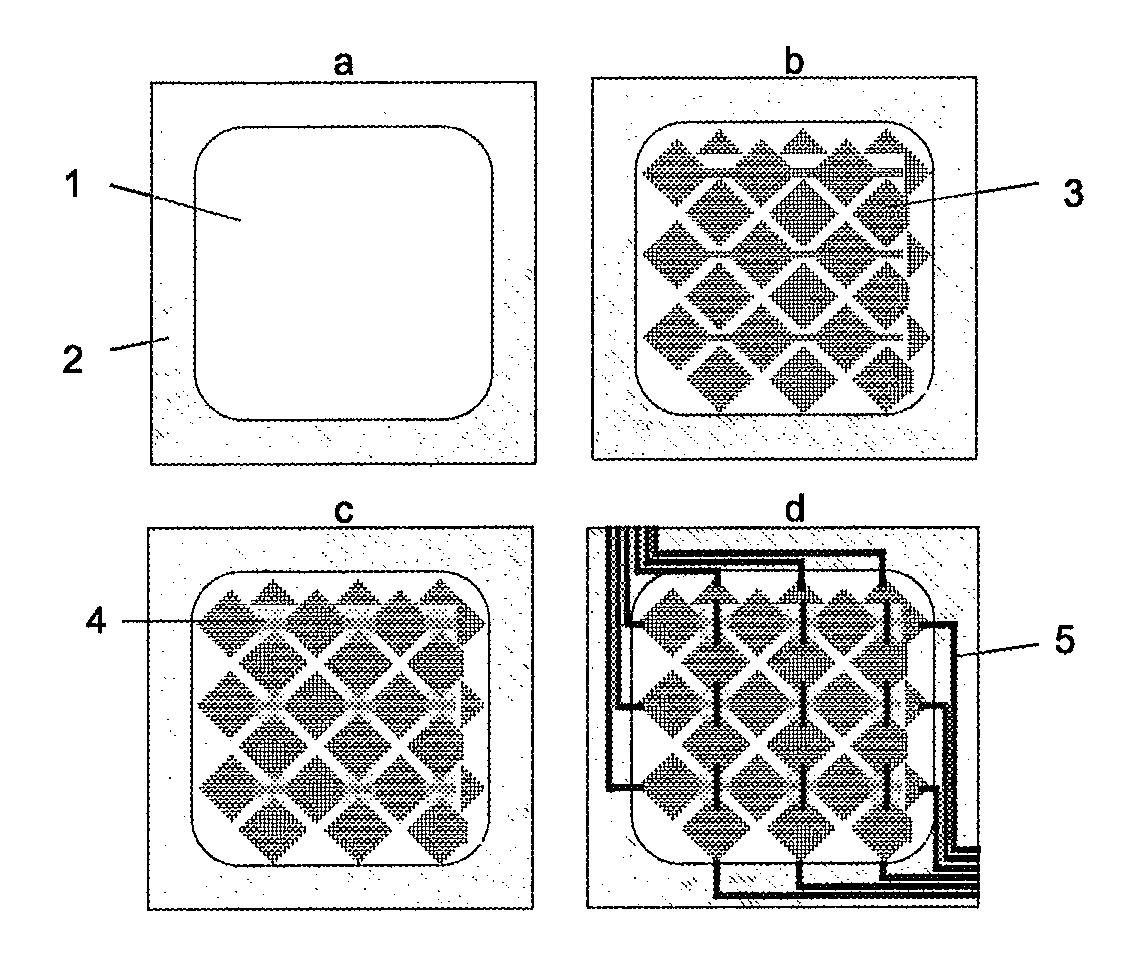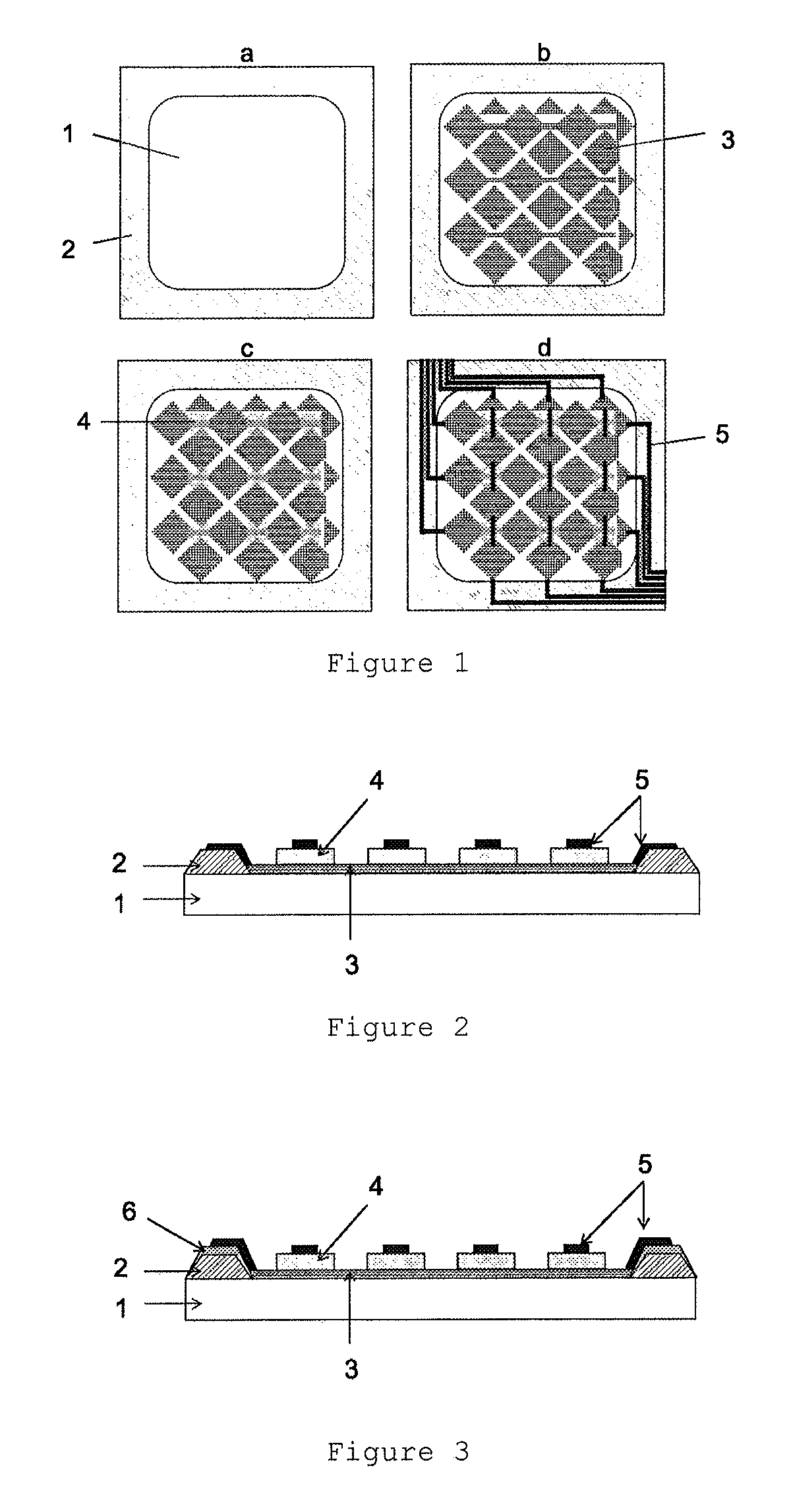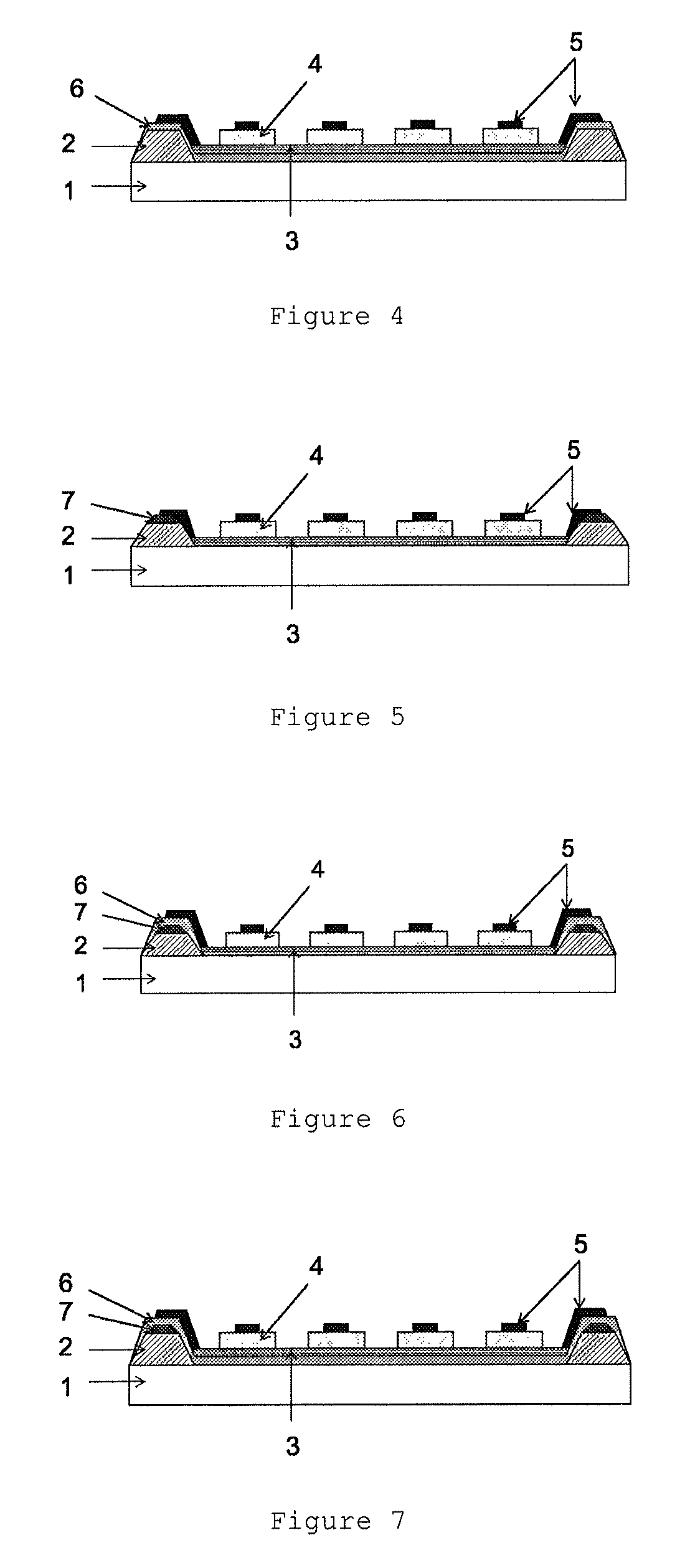Negative-type photosensitive white composition for touch panel, touch panel and touch panel production method
a technology of negative-type photosensitive white composition and touch panel, which is applied in the direction of photomechanical treatment, instruments, computing, etc., can solve the problems of undeveloped photosensitive white composition and unsuitable for a normal touch panel process, and achieve excellent adhesive force, high resolution, and low discoloration
- Summary
- Abstract
- Description
- Claims
- Application Information
AI Technical Summary
Benefits of technology
Problems solved by technology
Method used
Image
Examples
synthesis example 1
Synthesis of Siloxane Resin Solution (B1)
[0134]Into a 500 mL three-necked flask, 47.7 g (0.35 mol) of methyltrimethoxysilane (hereinafter, abbreviated as “MTMS”), 99.2 g (0.5 mol) of phenyltrimethoxysilane (hereinafter, abbreviated as “PTMS”), 39.4 g (0.15 mol) of 3-trimethoxysilylpropylsuccinic acid (hereinafter, abbreviated as “SuTMS”) and 152.3 g of propylene glycol methyl ether acetate (hereinafter, abbreviated as “PGMEA”) were charged, the flask was immersed in an oil bath of 40° C., and an aqueous phosphoric acid solution having 0.372 g (0.2% by mass with respect to the amount of charged monomers) of phosphoric acid dissolved in 56.7 g of water was added over 10 minutes by use of a dropping funnel while stirring the solution. The resulting mixture was stirred at 40° C. for 1 hour, and then stirred for 1 hour with an oil bath temperature set at 70° C., and furthermore the oil bath temperature was risen to 115° C. over 30 minutes. An internal temperature of the solution reached ...
synthesis examples 2 to 7
[0135]Alkoxysilane compounds were charged in proportions of monomer ratios shown in Table 1 to prepare siloxane resin solutions (B2) to (B7). When a monomer unit structure in the polymer main chain is taken as a unit, the monomer ratio becomes a unit ratio directly.
[0136]
TABLE 1SiloxaneResinMonomer (mole ratio)SolutionMTMSPTMSSuTMSAcTMSEpTMSDMDMSDPDMSFTMSMwSynthesisB1355015—————6000Example 1SynthesisB235301035————4000Example 2SynthesisB335—1540————4500Example 3SynthesisB4——1035—3520—2000Example 4SynthesisB5——103553020—2000Example 5SynthesisB6——1540———354000Example 6SynthesisB72040—40————5000Example 7
The respective components are as follows.[0137]AcTMS: Acryloyloxypropyltrimethoxysilane[0138]EpTMS: 2,3-epoxycyclohexylethyltrimethoxysilane[0139]DMDMS: Dimethyldimethoxysilane[0140]DPDMS: Diphenyldimethoxysilane[0141]FTMS: Trifluoropropyltrimethoxysilane
synthesis example 8
Synthesis of Acrylic Resin Solution (B-8)
[0142]Into a 500 mL flask, 2 g of 2,2′-azobis(isobutyronitrile) (hereinafter, abbreviated as “AIBN”) and 50 g of PGMEA were charged. Thereafter, 26.5 g (0.31 mol) of methacrylic acid (“MA” in Table), 21.3 g (0.21 mol) of styrene (“St” in Table) and 37.7 g (0.15 mol) of tricyclo[5.2.1.02,6]decane-8-yl methacrylate (hereinafter, abbreviated as “TCDMA”) were charged, the resulting mixture was stirred at room temperature for some time, and the inside of the flask was adequately replaced with nitrogen by nitrogen bubbling, and then the mixture was heated and stirred at 70° C. for 5 hours. Next, to the resulting solution, 14.6 g (0.09 mol) of glycidyl methacrylate (hereinafter, abbreviated as “GMA”), 1 g of chromium (III) acetylacetonate (hereinafter, abbreviated as “Cr(AcAc)3”), 0.2 g of p-methoxyphenol and 100 g of PGMEA were added, and the resulting mixture was heated and stirred at 90° C. for 4 hours. After completion of the reaction, to the re...
PUM
| Property | Measurement | Unit |
|---|---|---|
| average primary particle diameter | aaaaa | aaaaa |
| average primary particle diameter | aaaaa | aaaaa |
| primary particle diameter | aaaaa | aaaaa |
Abstract
Description
Claims
Application Information
 Login to View More
Login to View More - R&D
- Intellectual Property
- Life Sciences
- Materials
- Tech Scout
- Unparalleled Data Quality
- Higher Quality Content
- 60% Fewer Hallucinations
Browse by: Latest US Patents, China's latest patents, Technical Efficacy Thesaurus, Application Domain, Technology Topic, Popular Technical Reports.
© 2025 PatSnap. All rights reserved.Legal|Privacy policy|Modern Slavery Act Transparency Statement|Sitemap|About US| Contact US: help@patsnap.com



